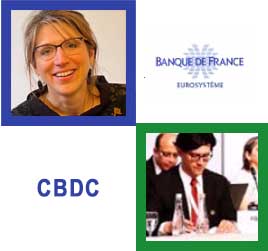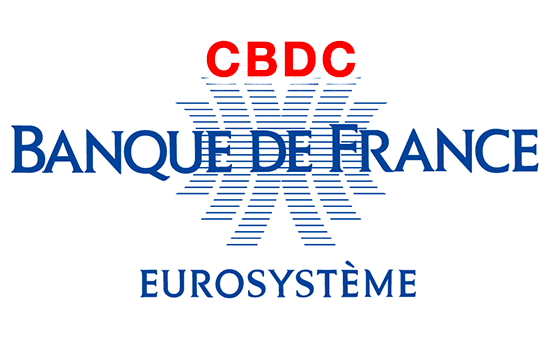Today’s presentation to the Blockchain NYC Meetup group reviewed the Banque de France‘s recent research on a Euro approach to a central bank digital currency (CBDC). Though still a couple of years away – at best – according to the Banque’s representatives, the central bank’s many moving parts offer opportunity with distributed ledger technology (DLT) and blockchain.
Where CBDC product development mixes with privacy was a topic in the Q&A section of the presentation.
Light editing for clarity…
Jamiel Sheikh, Blockchain NYC meetup moderator
[A question from a professor], and this may be applicable to retail CBDC, how will Bank of France design of CBDC affect consumer privacy? How [do you] address the trade off between protecting consumer privacy and mitigating risks to financial integrity?
Adeline Bachellerie, Head of Digital Currency and Innovation, Banque de France
Your quick question if I understand right is about retail CBDC here. So yes, as you know, we are working within Euro system on the Investigation Phase for [muffled, perhaps “exterior”] which could be Central Bank digital money for retail purposes. So, we do that work in this investigation phase on CBDC for wholesale purposes.
So, regarding this digital Euro – so cbdc for retail purposes – we launched this investigation phase in July last year. And at the end of 2023, the governing council of the ECB will decide if we go further, if we have a realization phase. So during these two years of Investigation Phase, we work on the legal questions. So the legal qualification of digital euro but also the impact on financial sector. And of course, we will also work on the design of the digital euro and, of course, on the issue of privacy.
 We are not commercial banks, we do not have any interest to to use private personal data. We do not have to choose yet how we will design the digital Euro. Of course, we have different options on the table and we have to [choose] one option, but it will strongly depend on the design of the digital Euro and how the design will respond to the use cases of the digital Euro. To be able to answer all these questions, we work with citizens and Americans and within the Euro system – we have national focus groups, and we work with them on the use cases of the digital Euro, how they will use it and when also -and what are their requirements. Based on these reflections with them and also with the financial intermediaries – not only banks but also financial intermediaries – we [choose] one or more options regarding privacy but also regarding all the design options of the digital Euro. So we have two years to choose.
We are not commercial banks, we do not have any interest to to use private personal data. We do not have to choose yet how we will design the digital Euro. Of course, we have different options on the table and we have to [choose] one option, but it will strongly depend on the design of the digital Euro and how the design will respond to the use cases of the digital Euro. To be able to answer all these questions, we work with citizens and Americans and within the Euro system – we have national focus groups, and we work with them on the use cases of the digital Euro, how they will use it and when also -and what are their requirements. Based on these reflections with them and also with the financial intermediaries – not only banks but also financial intermediaries – we [choose] one or more options regarding privacy but also regarding all the design options of the digital Euro. So we have two years to choose.
Later, in a follow-up response to the question….
Thomas Argente, Senior Advisor to the Director of Infrastructures, Innovation and Payments, Banque de France
I would just add one word on the previous question on the balance between privacy and fight against illicit financing. So, it’s an important question across the globe. And, it’s also a political question, meaning that it is also strongly the question for democratic representatives to know where the balance is to be struck between anonymity and the fight against terrorism. This is why it was in the Euro system we will as central banks work on the [muffled] and practicalities, etc. But we will also discuss and bring it to the legislators being the European Commission, the representatives of member states or the European Parliament. So sometimes you have technical possibilities, but you also have to have a political choice because it’s also about an approach to what is associative and what is living together.
Get more:

